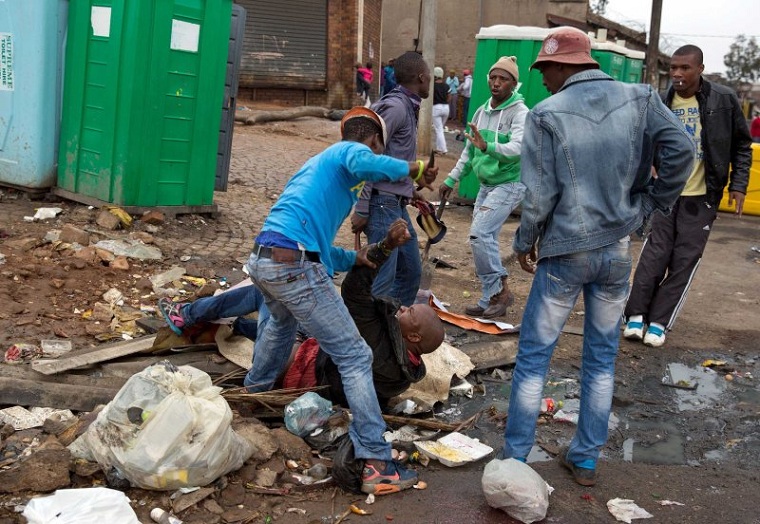Finance Minister Tito Mboweni in April said locals should be prioritized in post-pandemic recovery efforts. The government of Gauteng has denied its township development bill unfairly targets foreigners.
“Which part is xenophobic? Because what that bill is saying is that you must be a South African, you must be in South Africa legally,” said Vuyo Mhaga, spokesman for Gauteng Premier David Makhura. “The bias will obviously be for South Africans.”
Xenowatch, which gathers information on xenophobic attacks, says that between January 2019 and November 2020, 1 376 shops were looted and 37 people were killed.
Immigrants, many from Somalia and Ethiopia, dominate the ownership of township convenience stores because they are better equipped than South Africans to compete against formal supermarket chains, according to Alcock.
While South African store owners tend to operate by themselves, Somalians and Ethiopians band together and buy in bulk, allowing them to offer similar prices to supermarket chains, he said.
South Africans still own the properties, and, according to his estimates, immigrants pay R20 billion in rent in townships annually.
“The assumption is that if they stop illegal immigrants from trading then immediately those jobs will be taken up, or those small businesses will be taken up by South Africans,” he said. “That’s not true.”
South Africa First and the Put South Africans First movement, founded in April, are demanding interventions from government including a citizenship audit, the introduction of a public-service fee for foreigners and an end to the issuing of non-essential work permits.
The African Diaspora Forum, which campaigns for migrant rights, made a submission on the bill on 25 November and said it will challenge it in court if is passed.
As he listens to Nigerian gospel music and eats bread dipped in tea in downtown Johannesburg, Ekechukwu Nnadi points to a nearby street corner where he was beaten by anti-immigrant rioters three years ago. The incident hasn’t stopped him from coming back.
“This is where I make my ends meet to pay my rent and take care of my family,” he said.- Bloomberg
(77 VIEWS)


